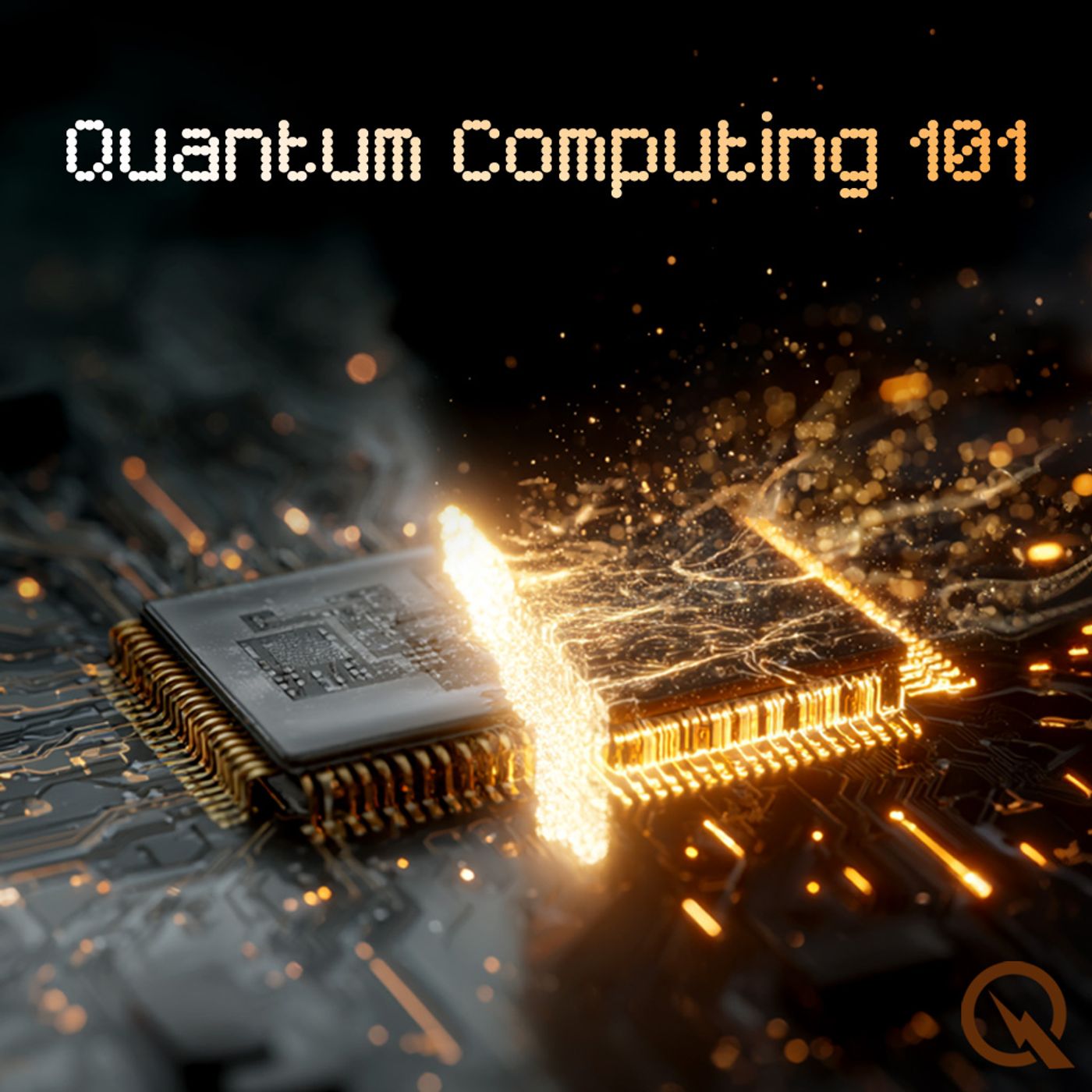Quantum Computing 101

Quantum Computing 101
Podcast Description
This is your Quantum Computing 101 podcast.Quantum Computing 101 is your daily dose of the latest breakthroughs in the fascinating world of quantum research. This podcast dives deep into fundamental quantum computing concepts, comparing classical and quantum approaches to solve complex problems. Each episode offers clear explanations of key topics such as qubits, superposition, and entanglement, all tied to current events making headlines. Whether you're a seasoned enthusiast or new to the field, Quantum Computing 101 keeps you informed and engaged with the rapidly evolving quantum landscape. Tune in daily to stay at the forefront of quantum innovation!For more info go to https://www.quietplease.aiCheck out these deals https://amzn.to/48MZPjs
Podcast Insights
Content Themes
The podcast covers a range of topics including quantum mechanics basics, distinctions between classical and quantum computing, the role of qubits, and emerging quantum-classical hybrid solutions. Examples of specific episodes include discussions on the Variational Quantum Eigensolver (VQE) for drug discovery and the Quantum Approximate Optimization Algorithm (QAOA) focusing on optimization problems in logistics and finance.

This is your Quantum Computing 101 podcast.
Quantum Computing 101 is your daily dose of the latest breakthroughs in the fascinating world of quantum research. This podcast dives deep into fundamental quantum computing concepts, comparing classical and quantum approaches to solve complex problems. Each episode offers clear explanations of key topics such as qubits, superposition, and entanglement, all tied to current events making headlines. Whether you’re a seasoned enthusiast or new to the field, Quantum Computing 101 keeps you informed and engaged with the rapidly evolving quantum landscape. Tune in daily to stay at the forefront of quantum innovation!
For more info go to
Check out these deals https://amzn.to/48MZPjs
This is your Quantum Computing 101 podcast.
Picture this—for the first time, scientists are tuning the dials on a new breed of machine at Oak Ridge National Laboratory. The room is intense, filled with the hum of America’s top supercomputers. Now, the NVIDIA NVQLink system, built by HPE, stands poised for installation in early 2026. I’m Leo, your Learning Enhanced Operator, and these past few days have felt electric as this hybrid quantum-classical experiment takes shape. Today, on Quantum Computing 101, I’ll walk you through why this matters—and how it genuinely transforms the computing frontier.
Imagine quantum computing as trying to balance on a tightrope strung between possibility and instability. Qubits—the quantum bits—are mercurial, able to exist in multiple states at once. They hold vast potential for processing, but are exquisitely sensitive to every micro-disturbance. Every flicker of stray magnetism, every sliver of heat, threatens to collapse their delicate dance. Enter a new hybrid: a system that fuses quantum and classical machinery, leveraging the brute force of GPU and CPU clusters to supplement and manage quantum error correction and control.
This week, Oak Ridge, NVIDIA, and HPE announced a collaboration that features advanced programming tools like CUDA-Q, allowing researchers to orchestrate both quantum and GPU simulations simultaneously. It’s similar to a modern orchestra: quantum processors as soloists, classical supercomputers as the conductor, and the programming environment as a shared musical score. Using CUDA-Q, Oak Ridge researchers can emulate quantum behaviors on classical hardware, injecting artificial ‘noise’ to mirror the quirks of real qubits, train AI models for error correction, and compare live results across the classical-quantum divide.
What’s revolutionary is that this setup isn’t locked to one specific protocol or quantum hardware vendor. You can plug in superconducting, trapped ion, or room-temperature quantum platforms; use GPU clusters for heavy-lifting simulations; and freely switch between control schemes in real time. That’s the power of convergence—by blending quantum and classical resources, we can iteratively refine algorithms, mitigate noise, and push experimental boundaries in fields from materials science to logistics.
These last few days, headlines have buzzed with DOE’s renewal of $625 million in funding for the National Quantum Science Research Centers, and with projects like QubiC at Berkeley Lab uniting QPUs, GPUs, and CPUs in tightly integrated environments. Meanwhile, Quantum Circuits and D-Wave are harnessing real-world hybrid applications to halve optimization run times, demonstrating how quantum-classical solutions are reaching beyond the lab.
It’s all about making the once impossible possible: using classical muscle to stabilize quantum agility. Much like learning to navigate a superhighway where lanes shift and merge but the destination remains discovery.
Thanks for tuning in to Quantum Computing 101. If you have questions or crave quantum drama on-air, fire an email to [email protected]. Subscribe for more mind-bending episodes. This has been a Quiet Please Production—find out more at quietplease.ai. Until next time, keep your minds entangled.
For more http://www.quietplease.ai
Get the best deals https://amzn.to/3ODvOta
This content was created in partnership and with the help of Artificial Intelligence AI

Disclaimer
This podcast’s information is provided for general reference and was obtained from publicly accessible sources. The Podcast Collaborative neither produces nor verifies the content, accuracy, or suitability of this podcast. Views and opinions belong solely to the podcast creators and guests.
For a complete disclaimer, please see our Full Disclaimer on the archive page. The Podcast Collaborative bears no responsibility for the podcast’s themes, language, or overall content. Listener discretion is advised. Read our Terms of Use and Privacy Policy for more details.